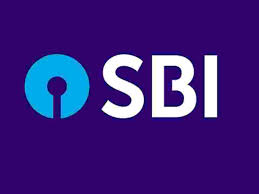South African Regulator Fines SBI’s South Africa Branch
In a recent development, the South African banking regulator has imposed fines on the South Africa branch of the State Bank of India (SBI). This move comes as part of the regulator’s efforts to enforce compliance with banking regulations and ensure the integrity of the financial system in the country.

Why this News is important:
Impact on Banking Sector The imposition of fines on SBI’s South Africa branch highlights the significance of regulatory compliance in the banking sector. It underscores the importance for financial institutions to adhere to strict regulatory standards to maintain trust and stability within the banking system.
International Reputation The news also sheds light on the international reputation of Indian banks operating overseas. Any regulatory actions or fines imposed on Indian banks abroad can impact their reputation and standing in the global financial landscape.
Regulatory Oversight This development emphasizes the role of regulatory bodies in overseeing the operations of foreign banks within their jurisdictions. It highlights the need for robust regulatory frameworks to monitor and enforce compliance with banking regulations, regardless of the bank’s origin.
Investor Confidence The regulatory actions taken against SBI’s South Africa branch may influence investor confidence in Indian banks operating internationally. Investors and stakeholders closely monitor regulatory developments to assess the stability and reliability of financial institutions.
Potential Repercussions The imposition of fines on SBI’s South Africa branch could have broader implications for other Indian banks operating in foreign markets. It serves as a reminder for banks to prioritize regulatory compliance and risk management to avoid similar penalties.
Historical Context:
The State Bank of India (SBI) is one of the largest public sector banks in India, with a significant presence both domestically and internationally. The bank’s operations in South Africa began in 1997 when it established its first branch in Johannesburg. Over the years, SBI has expanded its footprint in South Africa, offering a range of banking services to customers and businesses.
Key Takeaways from “South African Regulator Fines SBI’s South Africa Branch”
| Serial Number | Key Takeaway |
|---|---|
| 1 | Regulatory compliance is crucial for banking operations |
| 2 | International reputation of Indian banks is at stake |
| 3 | Regulatory oversight plays a vital role in the banking sector |
| 4 | Investor confidence may be affected by regulatory actions |
| 5 | Other Indian banks operating overseas should prioritize compliance |
Important FAQs for Students from this News
1. What prompted the South African banking regulator to impose fines on SBI’s South Africa branch?
- The fines were imposed as part of the regulator’s efforts to enforce compliance with banking regulations and ensure the integrity of the financial system in South Africa.
2. How might the imposition of fines on SBI’s South Africa branch affect the reputation of Indian banks operating overseas?
- Any regulatory actions or fines imposed on Indian banks abroad can impact their international reputation and standing in the global financial landscape.
3. What does this news suggest about the importance of regulatory compliance in the banking sector?
- This news underscores the significance of regulatory compliance for financial institutions to maintain trust and stability within the banking system.
4. How long has the State Bank of India (SBI) been operating in South Africa, and where is its first branch located?
- SBI’s operations in South Africa began in 1997, and its first branch was established in Johannesburg.
5. What should other Indian banks operating overseas learn from the regulatory actions taken against SBI’s South Africa branch?
- Other Indian banks operating abroad should prioritize regulatory compliance and risk management to avoid similar penalties and maintain investor confidence.
Some Important Current Affairs Links


















